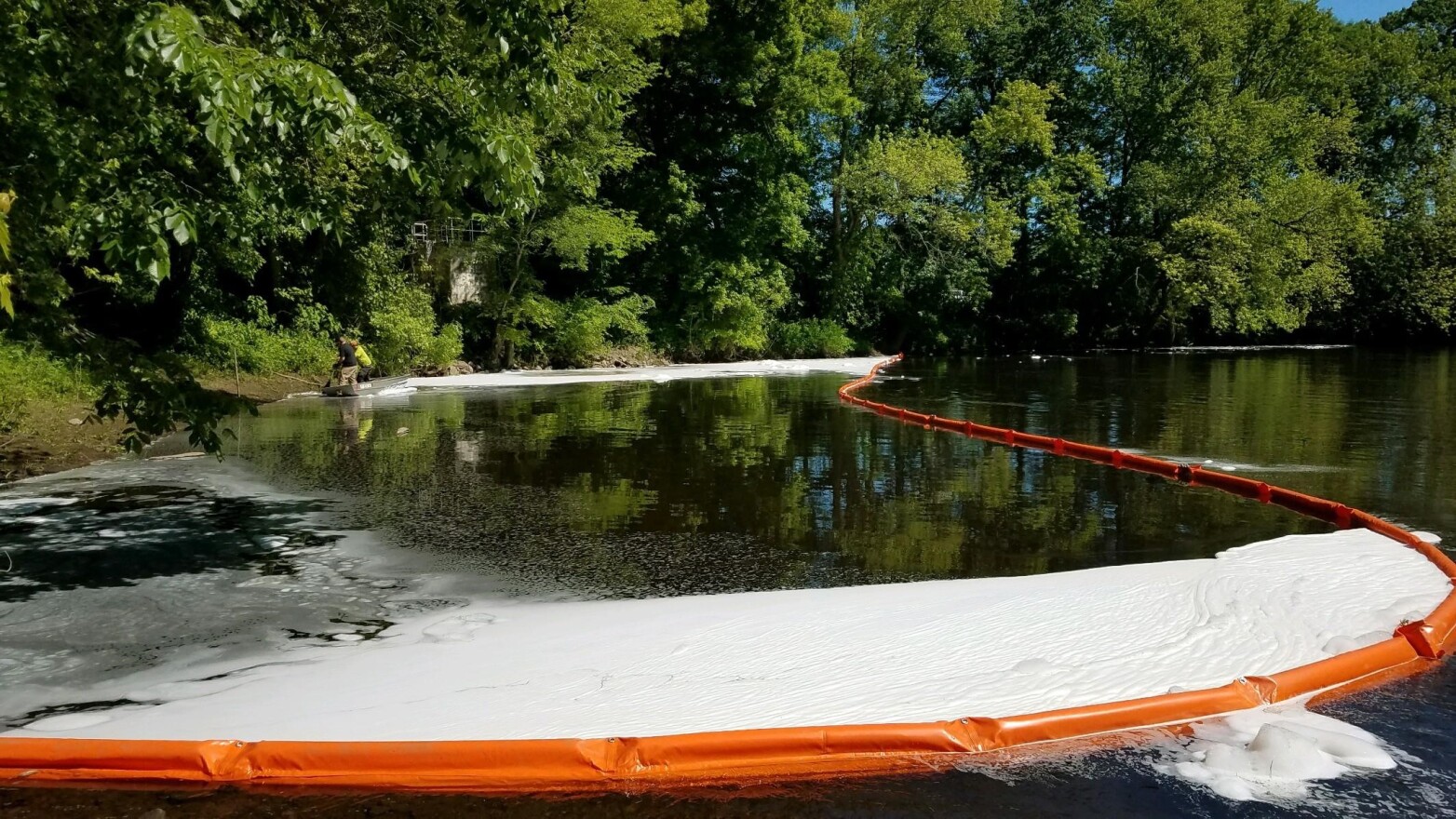Lawmakers and environmental advocates gathered on the banks of the Farmington River Friday, calling for state and federal action following a chemical spill at a private aircraft hangar, which contaminated the river.
The June 12th spill leeched an estimated 50,000 gallons of PFAS-contaminated water and foam into the Farmington River.
That foam, which is used to combat chemical fires at airports has been linked to kidney disease, liver problems, and possibly cancers.
Chris Phelps, state director of the advocacy group Environment Connecticut, said the spill was “allowed to happen.”
"Through inaction and slow action by the FAA in removing these chemicals from civilian aviation uses," Phelps said. “It was allowed through inaction by policymakers at the state level who have moved too slowly.”
This legislative session, a bill to limit the use of PFAS-chemicals failed to pass through the state General Assembly.
At the federal level, Senator Richard Blumenthal said Friday he is introducing an amendment to the National Defense Authorization Act, which is due for a vote next week.
Blumenthal said his amendment would make PFAS more tightly regulated, help pay for cleanups, and permit airports to use firefighting foam that do not contain the chemical.
Right now, Blumenrthal said the FAA requires airports and aircraft manufacturers have this foam available to fight oil and chemical fires.
“I’ve written to the FAA today saying it must lift that requirement,” Blumenthal said.
Meanwhile, as a result of the spill, state officials said Friday to not eat fish caught downstream from Route 75 in the Poquonock section of Windsor to where the Farmington enters the Connecticut River.
Health officials are advising the public to avoid any foam they may encounter on the river banks or on the river.
Just this spring, the Farmington River received federal recognition as “Wild and Scenic.”
Part of that designation was based on the river’s water quality, said Sally Rieger, former chairman of the Lower Farmington River and Salmon Brook Wild and Scenic Study Committee.
Rieger said the same political support she spent years gathering to get the Farmington River its Wild and Scenic designation, will now be needed to craft legislation keeping PFAS out of all Connecticut waterways.
“What we need is to ensure that there won’t be anymore incidents like this one,” Rieger said. “We need to keep industrial accidents from sending hazardous materials down the drain, and ultimately, into the river.”
Copyright 2019 Connecticut Public Radio





